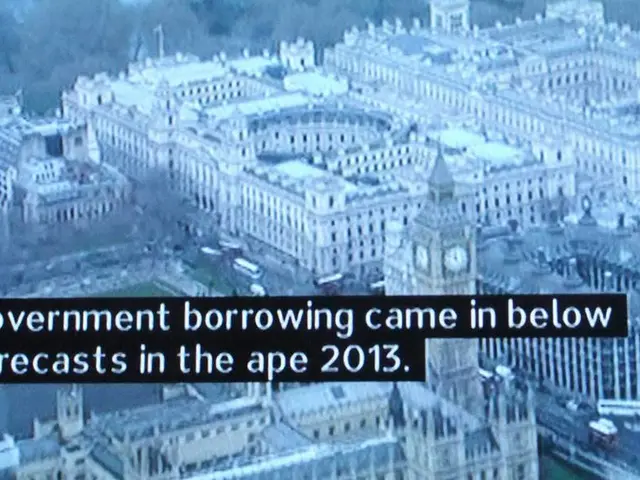France's Nuclear Woes: A Looming Crisis and Its Impact on Germany
Increased Cost of Electricity in Germany due to Macron's Energy Policies
France, a country heavily reliant on nuclear power, is currently grappling with over half of its power plants either offline or operating at reduced capacity. This predicament is stirring up a potential shortage come winter, and prices are steadily climbing––a situation President Emmanuel Macron is working tirelessly to keep under wraps. Worryingly, this escalating energy crisis might not just be limited to France but could spill over to Germany and Europe as a whole.
The French Nuclear Power Debacle
With 27 reactors currently offline, the remaining 29 are limping along, barely keeping up with France's energy demands. EDF, the French energy giant, predicts a quarter less electricity will be produced in 2022. Given that nuclear power accounts for approximately 67% of France's electricity needs, the scarcity is driving up prices. Surprisingly, Germany is currently exporting more electricity to France than vice versa.
Reasons Behind France's Soaring Electricity Prices
The root cause of France's nuclear power plants being placed on the sidelines is a perfect storm brewed by the current drought and high river temperatures, maintenance delays, and the discovery of corrosion damage in some newer reactors in late December. The increased prices on the futures exchanges unequivocally indicate that this quandary is unlikely to be resolved by winter.
Macron's Energy Policy: Implications for Germany
Although France is less dependent on Russian gas than Germany, France's electricity prices for the coming winter remain significantly higher, with a megawatt-hour in Germany expected to be 600 euros compared to 1055 euros in France. French consumers currently remain unaffected due to Macron's capping of electricity prices, which he has extended until the end of the year. However, this move could potentially exacerbate the price surge in France and have ripple effects throughout Europe, including Germany.
The Struggling French Energy Juggernaut, EDF
EDF, struggling with numerous repairs, has recorded a billion-euro loss in the first half of the year. The company expects charges of 24 billion euros for the entire business year, up from 18.5 billion euros previously. Despite these challenges, most analysts advise holding onto the stock.
Enrichment Data:
- The new generation of nuclear power plants (EPR2) in France, like the Flamanville plant, are facing delays, leading to increased costs and reduced electricity output.
- France's aging nuclear reactors require frequent maintenance, which can lead to temporary shutdowns and contribute to higher prices.
- Integrating renewable energy can lead to grid instability, as the grid is not yet fully optimized to handle the variability of wind and solar power, potentially impacting electricity availability and prices.
- Europe's reliance on nuclear power, particularly in France, means any disruptions or inefficiencies can impact regional energy security.
- The demand for low-cost nuclear electricity can influence market prices across Europe due to mechanisms like Arenh, indicating a competitive market where alternative suppliers seek affordable options.
- Regional cooperation is crucial in maintaining grid stability, as the interconnected European grid means power outages or supply issues in one country can affect others.
- The renewable-energy industry is eyeing France's ongoing nuclear crisis as an opportunity for potential expansion, given the rising energy prices and the need for alternative sources.
- Finance, particularly investment in renewable energy, could play a significant role in addressing France's energy predicament and mitigating future crises, considering the instability of nuclear power plants.
- Policy-and-legislation changes and subsidies might be necessary to facilitate the growth of the renewable-energy sector, which could lead to energy independence and reduce dependence on traditional, problematic power sources like nuclear energy.
- Politics, specifically the stance of key European leaders, will likely influence the broader direction of the energy landscape, with a focus on renewable energy playing a crucial part in maintaining energy security and driving down prices in the general-news context.







